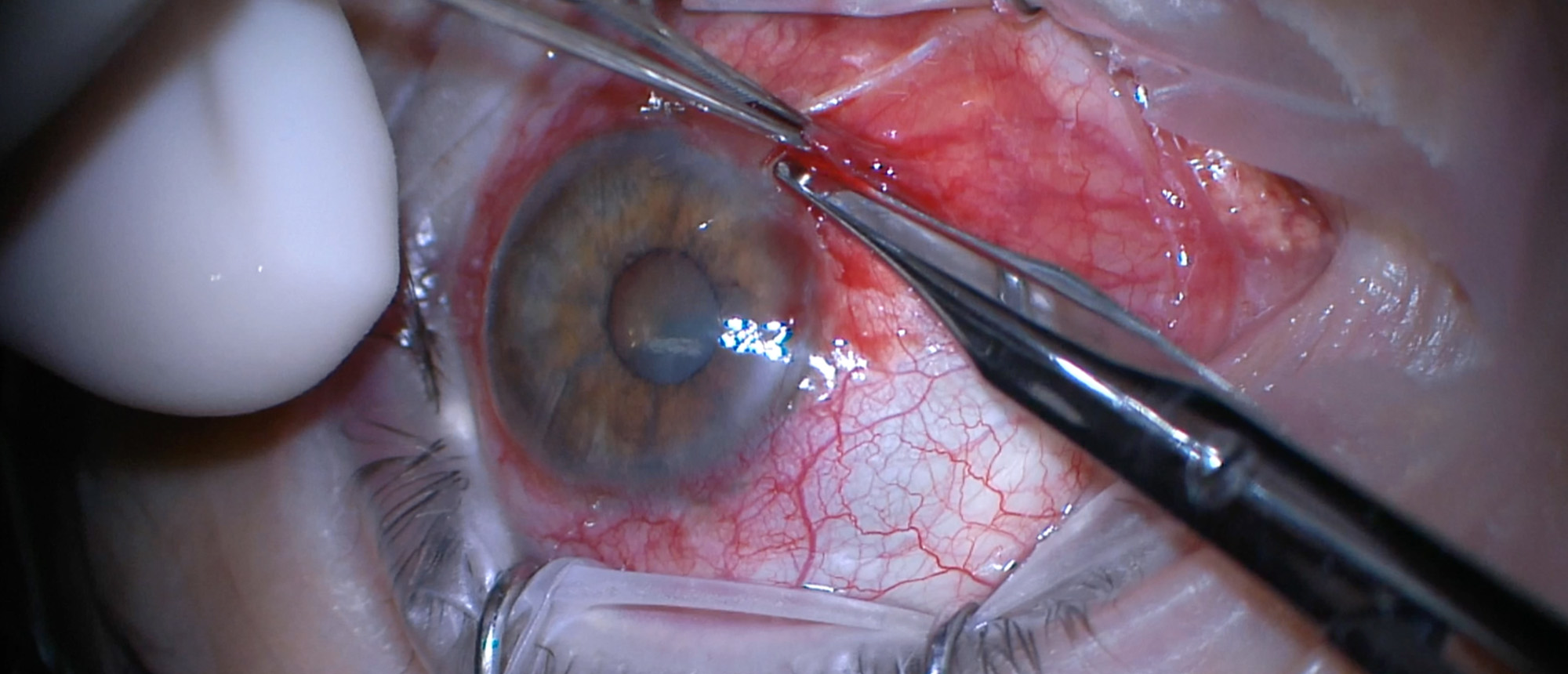
Motility Disturbances after Glaucoma Drainage Device
A patient with a history of traumatic angle recession glaucoma in the left eye presented with acute onset of double vision and persistent ocular soreness in the left eye. He denied generalized weakness or difficulty with respiration. His surgical history included a valved glaucoma drainage device (GDD) for poorly controlled intraocular pressure in the 30s on maximal tolerated medications. He developed a hypertensive phase after postoperative week 2 through 7 which required placement of a non-valved glaucoma drainage device. His exam was notable for a RAPD in the left eye with visual acuity of 20/20 in the right eye and 20/30 in the left eye. Intraocular pressures were 14 and 17, controlled on topical therapy (xalatan and timolol). Slit lamp exam revealed a superotemporal and an inferonasal tube shunts in the left eye. Motility exam revealed, -3 restriction in adduction, a large angle exotropia (30 PD in primary) worse in right gaze and a small angle hypertropia (5 PD in primary) worse on left gaze. When strabismus surgery was scheduled, he was found to have tube exposure in the inferonasal quadrant. He underwent removal of the Baerveldt device followed by limited transscleral cyclophotocoagulation. There was improvement in adduction and ocular discomfort after surgery. Elevated intraocular pressure was controlled on medical therapy (latanoprost, pilocarpine, and dorzolamide-timolol).
Presentation Date: 04/28/2022
Issue Date: 06/10/2022
Please log in or click on ENROLL ME to access this course.

